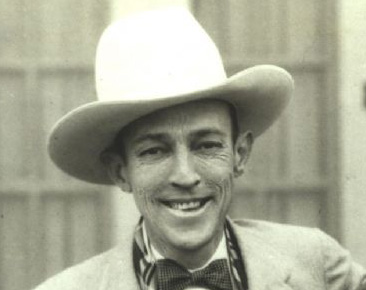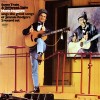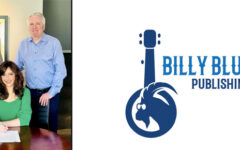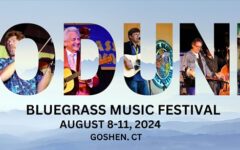
 Yesterday, May 26th, it has been 82 years since the passing of Jimmie Rodgers. A titan of American music, Jimmie Rodgers is considered an influence in country, bluegrass, folk, jazz, blues, rock, pop, Americana, and more.
Yesterday, May 26th, it has been 82 years since the passing of Jimmie Rodgers. A titan of American music, Jimmie Rodgers is considered an influence in country, bluegrass, folk, jazz, blues, rock, pop, Americana, and more.
In six short years, “The Father of Country Music” left behind a musical legacy which is still relevant in today’s popular culture. As we remember Jimmie’s passing, I will be featuring some “Rodgers Remembrances” and discussing Jimmie’s impact on bluegrass music.
I’m goin’ to California where they sleep out every night
I’m goin’ to California where they sleep out every night
I’m leavin’ you mama cause you know you don’t treat me right
Listen to me mama while I sing you this song
Listen to your daddy singing you this lonesome song
You got me worried now but I won’t be worried long
Let me tell you something mama that you don’t know
Let me tell you something good gal that you don’t know
I’m a do-right papa and got a home everywhere I go
Got the California blues and I’m sure gonna leave you here, oh Lord
Got the California blues and I’m sure gonna leave you here
I may ride the blinds, I ain’t got no railroad fare
I don’t understand what makes you treat me like you do
I can’t understand how come you treat me like you do
Now if you don’t want me mama it’s the same I don’t want you
One of Jimmie Rodgers’ many monikers was “America’s Blue Yodeler.” That is because he comprised a series of thirteen “Blue Yodels,” which were among his most popular songs. The blue yodels derived their name from the original title of Jimmie’s breakthrough hit, Blue Yodel, more commonly referred to by its opening line, “T for Texas.” Most of his blue yodels would receive such alternate titles as well, as a means to differentiate the songs from one another.
Ex: Blue Yodel No. 8 = Muleskinner Blues
Blue Yodel No. 4 came to be known as California Blues because a) the singer expresses his desire to move to the Golden State in the opening lines and b) the line “Got the California blues” seems a good reason to assume that California Blues would be a fitting alternate title.
https://www.youtube.com/watch?v=p2yX7-pb5Tw California Blues may be one of my favorite Jimmie Rodgers songs, as it is the opening track on the album which is responsible for making more people aware of Jimmie Rodgers’ legacy than any other: Merle Haggard’s Same Train, A Different Time.
California Blues may be one of my favorite Jimmie Rodgers songs, as it is the opening track on the album which is responsible for making more people aware of Jimmie Rodgers’ legacy than any other: Merle Haggard’s Same Train, A Different Time.
When I was wide-eyed preteen, I was talking to my grandma about buying a Merle Haggard CD. Of course I was already a Haggard fan, but I wanted to actually own my first Haggard CD. Looking around in the music store, I asked Mamaw which one I should get. She pointed to a CD re-release of Same Train, A Different Time, and told me that is one of the best albums in the entire store. She went on to tell me how it was one of Papaw’s favorites, and one of my dad’s as well. I quickly flipped the CD over, expecting to see some of my favorite songs, like Mama Tried and Okie From Muskogee, but to my disappointment, I didn’t recognize a single song. As an all-wise ten-year old, I assumed Mamaw must have been mistaken, and put the CD back on the shelf. Thankfully, years later, I’m glad to learn that it was I who was mistaken.
Same Train, A Different Time is a true masterpiece of American music. Released in 1969, the beefy two-LP release is the most visible Jimmie Rodgers tribute album of all-time. When it was released, Merle Haggard was one of the top stars in country music. Many of his signature songs had already topped the charts, including Sing Me Back Home, Mama Tried, Workin’ Man Blues, and classic Live From Muskogee album would be released a few months later. This extreme popularity not only gave Haggard the creative license to take a gamble on a “labor of love” project such as Same Train, A Different Time, but made the album’s release all the more significant. To have the top country artist of the day (aside from maybe Johnny Cash, who was a Jimmie Rodgers fan as well) release a tribute album to a man who was often overlooked at this time, caused many to pay attention to the message which Haggard was trying to deliver.
This was the first of Haggard’s successful concept albums. Later such records included a salute to Dixie blues, an all-train songs album, and a tribute to Bob Wills. What especially made Same Train, A Different Time unique, was not only did the record emphasize Rodgers’ music, but the record included a series of narrations, delivered by Haggard, which told the story of Jimmie and his career. I would venture to say that more people have learned about Jimmie Rodgers from those five narrations, than from any other non-song means.
The album topped the Billboard charts in 1969, an impressive achievement, considering that the record did not contain a hit single. The album’s combination of country, blues, jazz, and folk sounds, not only exemplified the music of Rodgers, but allowed the record to be more applicable to a modern audience by showcasing the diversity within Rodgers music. The success of Same Train, A Different Time has led many to the rich musical well of Jimmie Rodgers, a true testament to the impact of Merle Haggard on the Rodgers legacy. Haggard’s love of Rodgers’ music is even bleeding into the 21st century, as his upcoming collaboration with Willie Nelson is entitled Django and Jimmie. From interviews, the title references each of the artist’s biggest influences: Django Reinhardt for Willie Nelson and Jimmie Rodgers for Merle Haggard.
California Blues is the opening track on Same Train, A Different Time. The song was first included on Haggard’s Pride In What I Am record, released a few months previously. From the opening acoustic guitar licks, you know that this is going to be powerful music from one of the greatest. Haggard’s effortless delivery of this song is one of his coolest performances. The bluesy dobro in the background, while Haggard is singing in his signature style which seamlessly combined the country and the city is magical. Haggard knew (and still knows) how to milk every ounce of emotion out of every note he sang, and this is one of the finest examples. The song constantly wavers between miserable and rowdy. Haggard is practically shouting on the chorus, emphasizing every syllable with a punch. While the song was not a hit single, it is still a popular Haggard song, for good reason. Let’s just be honest: Hagg is the man.
There have been several bluegrass recordings of California Blues as well, which is due, at least in part, to Haggard’s success with Same Train, A Different Time. The Seldom Scene recorded it on 1979’s Act Four. Phil Rosenthal’s smooth voice matches the California-cool demeanor of the song, but John Duffey’s powerful tenor is really a highlight on the cut. Ben Eldridge’s all-too-often-underrated banjo playing stands out on the cut as well, while Tom Gray’s bass playing just takes the “cool factor” of this song to the next level. Mike Auldridge’s dobro playing always shines, but the bluesy nature of California Blues provides a particularly formidable platform for the instrument. It’s particularly poignant that Auldridge plays on this cut, as his uncle, Elsworth Cozzens, recorded on a handful of songs with Jimmie Rodgers in 1928.
Tim O’Brien provided a more modern take of California Blues on 2005’s Cornbread Nation. Complete with Kenny Malone on snare drum and Cousin Kenny Vaughan (of Marty Stuart’s Fabulous Superlatives) on electric guitar, the take is hardly strictly bluegrass, but it is every bit a powerful. A simple instrumentation with O’Brien and his guitar joined by merely Malone, Vaughan, and Dennis Crouch on bass, the cut is definitely worth your time. Tim O’Brien is one of our music’s greatest vocal talents. Regardless of song, style, or genre, he will knock it out of the park, and Rodgers’ California Blues is no exception. And maybe I’m a little partial, but Cousin Kenny is one of my favorite electric guitarists, so his contribution really blows me away.
Other bluegrass versions include renditions from Doc Watson and Rob Ickes.
Be sure to check back tomorrow for another Rodgers Remembrance.







